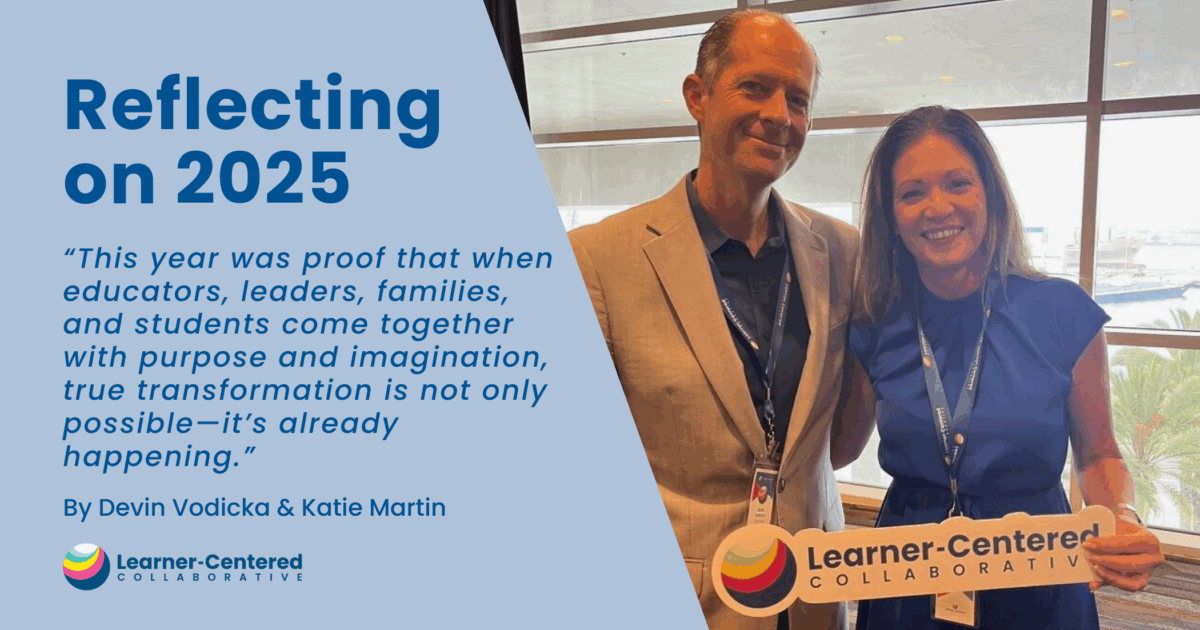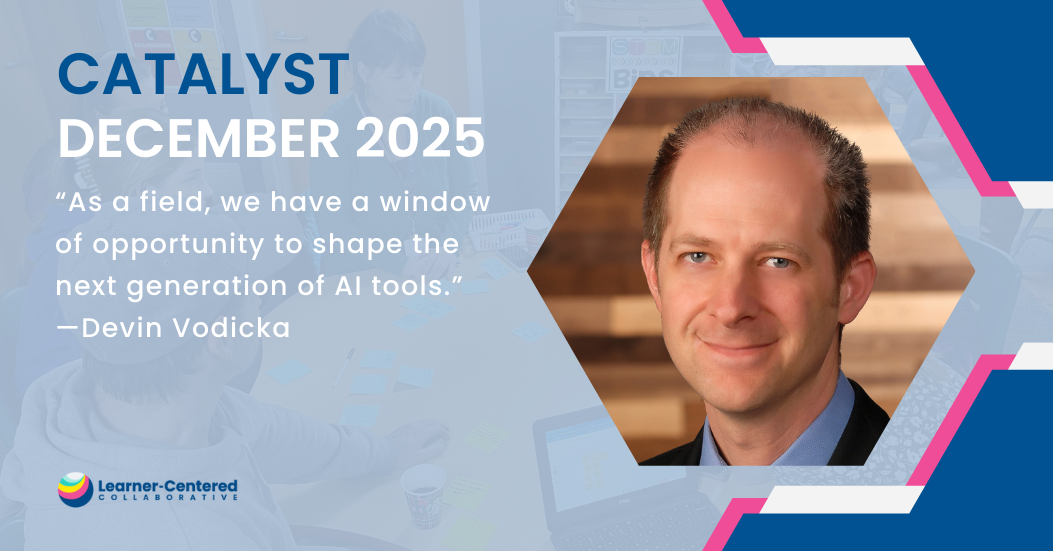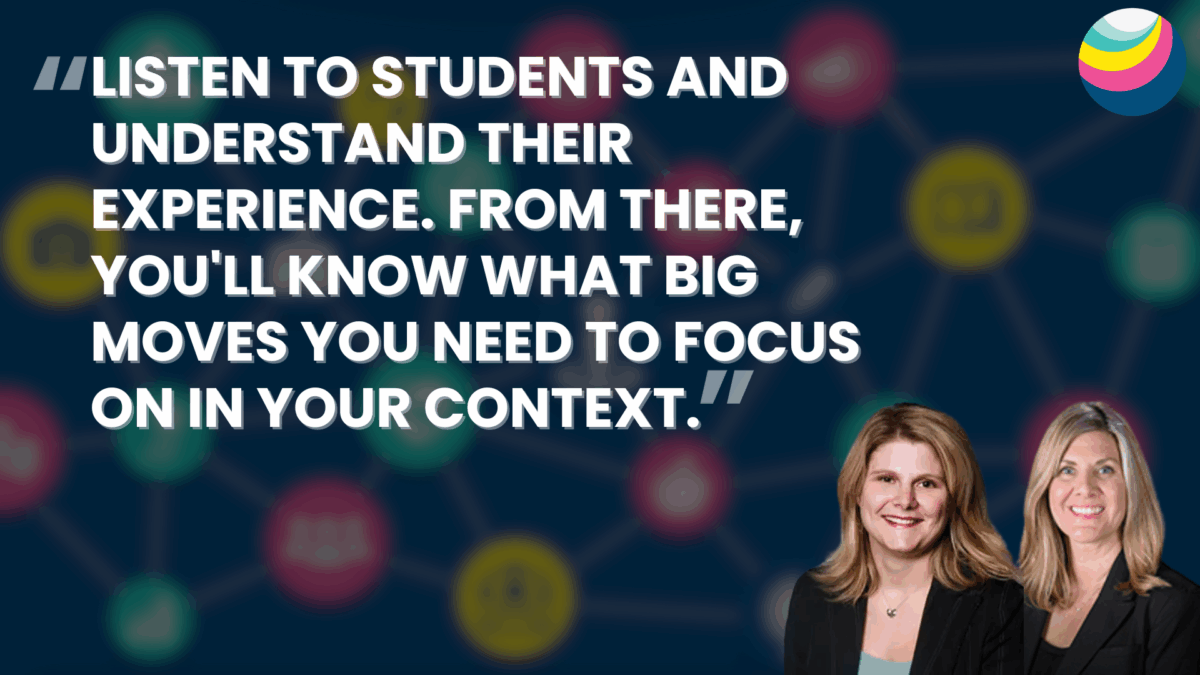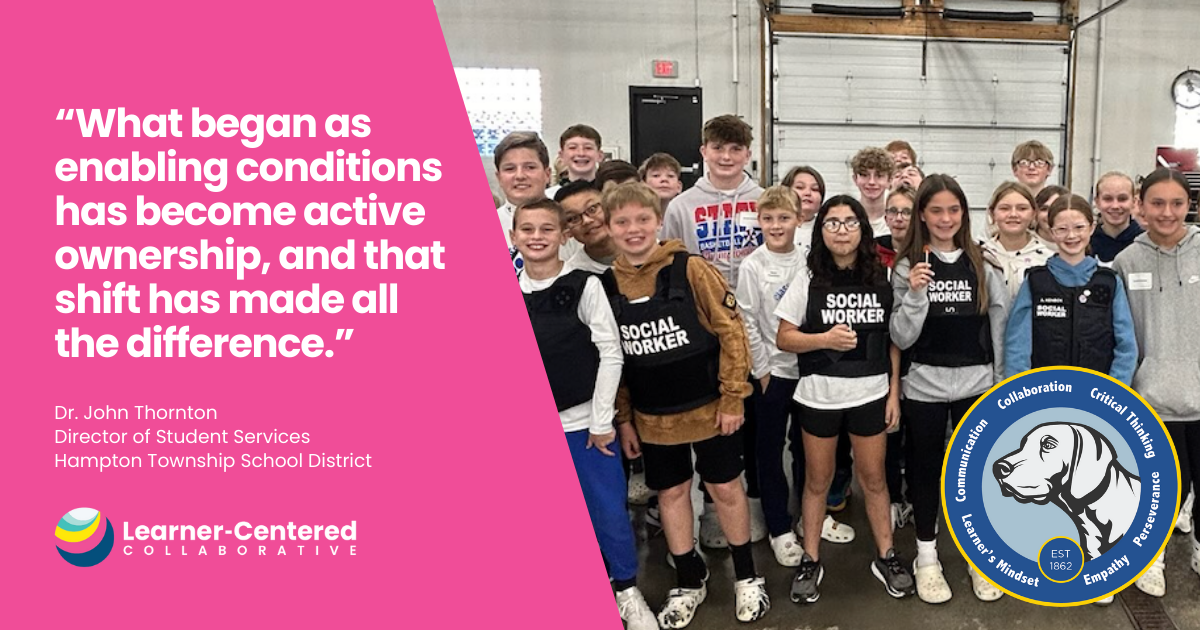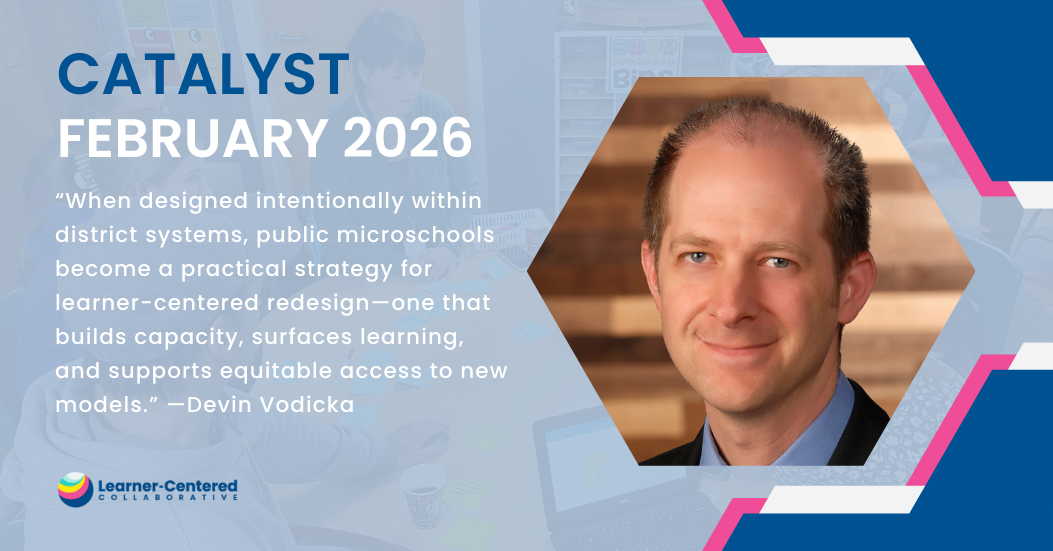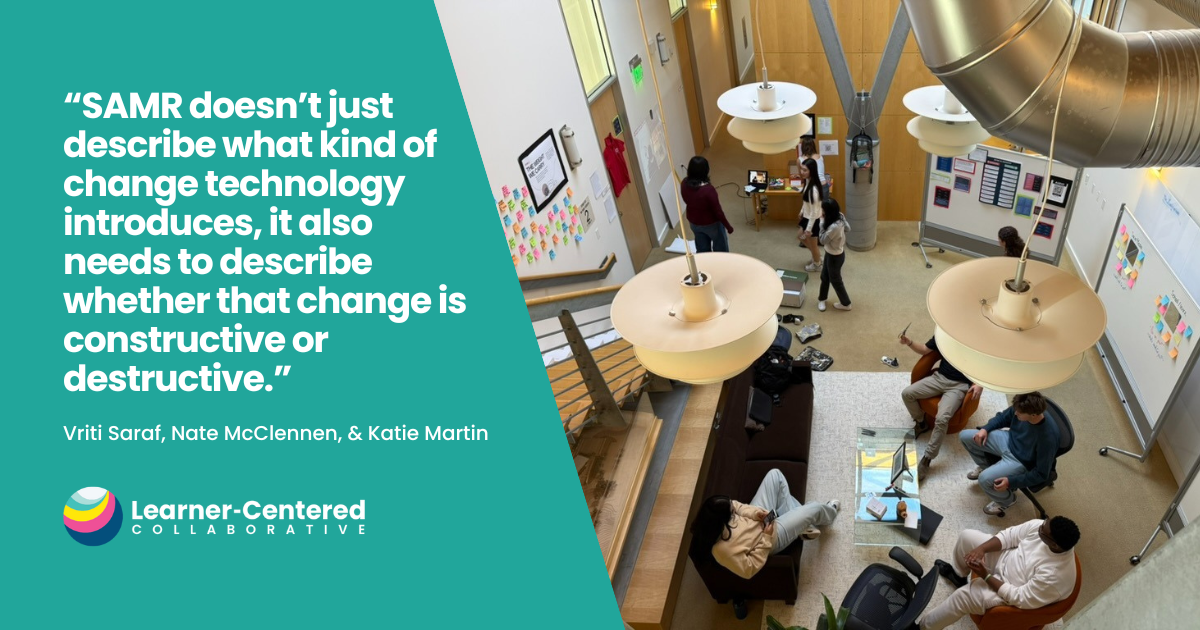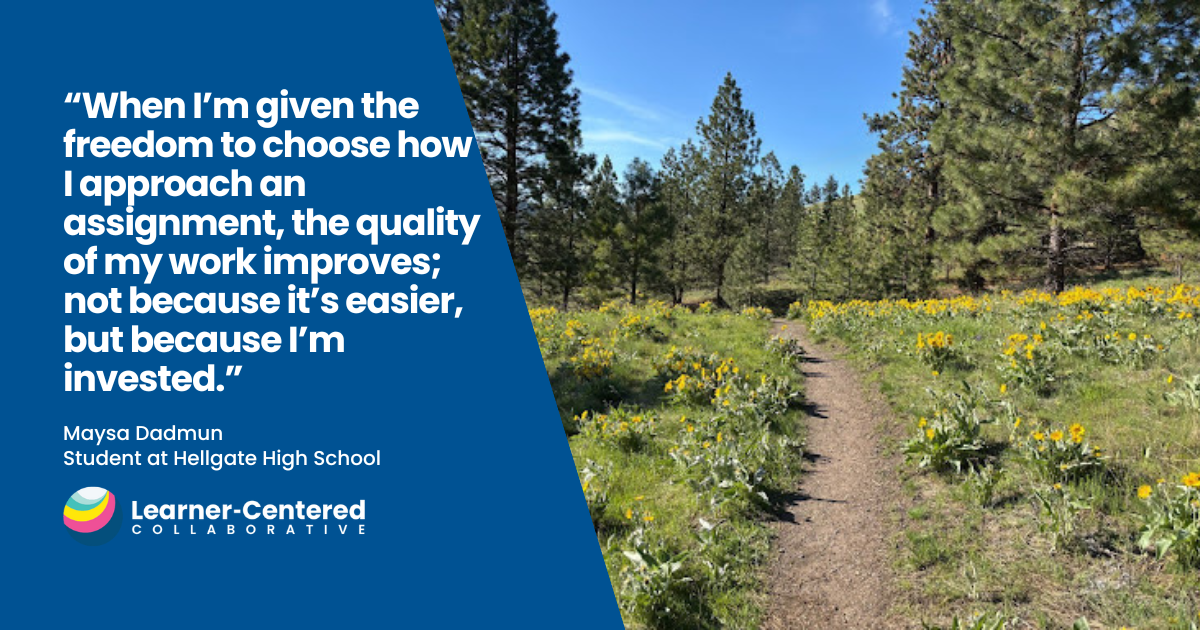Putting Students at the Center: Fireside Chats with Innovative Leaders
Gain insights from leaders and practitioners at learner-centered schools and districts across the country as they share their journeys, lessons learned, advice, and visions for the future. This series of virtual conversations is meant to inspire, share practical ideas and resources, and spark conversations in support of expanding learner-centered educational opportunities to all learners.
Hosted by Digital Promise, in collaboration with Learner-Centered Collaborative, the three-part series includes:
Session 1: Inspiration from Learner-Centered Schools
Leaders from Menlo Park City School District, Embark Education, and Pioneer Elementary share how they are finding novel ways to promote whole-child, competency-based experiences. They discuss:
- How they define competency-based education.
- Best practices for successfully implementing student-led conferences, portfolio defenses, and learner profiles.
- Strategies for fostering student agency.
Session 2: Author Talk: Evolving Education and Leading the Way Toward a Learner-Centered Paradigm
Authors and Learner-Centered Collaborative leaders join Digital Promise CEO Jean-Claude Brizard to discuss why they believe learner-centered education is more important and tangible than ever before. They share insights from their experience and books (Evolving Education and Learner-Centered Innovation by Katie Martin and Learner-Centered Leadership by Devin Vodicka) that can help leaders and educators make big and small shifts that orient toward more learner-centered practices.
Session 3: Superintendents in Conversation: Leading Districts Toward a Learner-Centered Future
There are many paths to realizing learner-centered education models and there is much to learn from schools and districts already paving the way. Join Superintendents from across the country in conversation as they share key practices and lessons learned on their unique journey to more inclusive, equitable, and learner-centered models of education. The discussion will touch upon panelists’ first-hand experiences:
- Developing a culture of agency to engage learners and close equity gaps
- Bringing a learner profile to life from concept and development through to implementation and assessment.
- Opening microschools and leveraging technology to meet students where they are academically, socially & emotionally, and physically.
- Building upon lessons learned and bright spots that emerge when an entire learning community works collaboratively toward a learner-centered model of education.
To access all the recordings, complete the form below:
